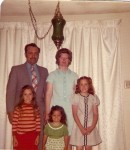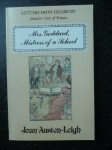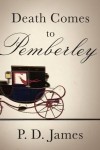From Dad, I learned that everyone is worthy of respect. No one is less-than.
I learned that violence is never the answer, and never to be tolerated.
I learned the joys of wandering road trips. Any road/trail is worth exploring at least once, and in the meantime you are building a map of your surroundings. You’ll always be able to find your way home.
Reading is always a good thing. If you have $5, spend it on a book.
Being alone is okay. Good, even.
Never admit to being vulnerable.
Never show weakness.
If you tell a lie enough times, you’ll start to believe it.
So much I learned in opposition to what he (and my mother) did.
Let your children be children.
Talk to them.
Hug them & tell them you love them until they are sick of hearing it and then tell them some more.
Let them make their own choices (in a SAFE environment) and let them learn from their mistakes.
Tell the truth.
Take care of yourself and do not expect others to take care of you (because they might not, and then where will you be?).
Don’t count on anyone.
I don’t wish I had different parents. I don’t know how to do that. They were my PARENTS. I wish they had been better parents – better people, really. Better in the sense that they wanted to be good people and/or good parents and worked at it, or even thought about it more. Well, I think maybe Dad thought about it, but thinking is not doing – and who got that tendency in spades? Mom was not a doer, and I don’t have evidence that she was much of a thinker, either.
But wishing they were someone else is like wishing to sweep away MY ENTIRE EXISTENCE. How could I be happy now and then wish for that?
I watch Facebook as people I know talk about their dads, change their profile pics, gush about how wonderful they are, say how much they miss them. I watch those who have complicated relationships with their fathers try to be honest while still honoring them. I respect that. Certainly more than the ‘perfection is my dad’ idea. Tara has a fantastic blog post about how lucky she is and what she learned from her dad (which is what sent me to writing this) and, without pretending he’s perfect, she talks about how lucky she was in the Dad lottery – a big winner, indeed.
I am not a winner. If it’s a contest, I guess I’m a loser. My dad chose distance over connection, again and again. And now he’s really gone, and my life is hardly different than it was when he was alive. I lost him long before he died.
Because of my dad’s choices (and my mother’s acquiescence), I have almost no connection with an extended family that could have helped me (and the rest of my family) weather the windstorm that started as gusts and ended as something like a hurricane – blowing Susan far, far away and slowly scattering the rest of us like debris, with no relation to its origin. I now feel like I actually know some of those aunts and uncles and cousins – but it’s much too late to be rescued by them.
What bonds my siblings and I have now are almost entirely of our own making – other than the early encouragement to be kind to one another. We were (or at least, I was) rarely told to ‘be more like your sister’ or allowed to exclude each other from our activities. But my parents did nothing to try to keep this family together once we started leaving. No. Thing.
Susan has worked to make sure that Mom stays connected, and I have worked to make sure that Laurie stays connected. I think Susan and I have not had to work very hard to stay connected, once I visited her in Montana that first time (what would have happened if she’d been in Texas or something? I shudder to think). We both wanted it, we both just took it as normal – because, hello, it is pretty normal to want to know what the fuck’s going on in your sister’s life. That’s pretty much what our family is built on right now – Susie & I staying close. If I stopped talking to her (which I cannot currently envision) then I would lose all touch with Mom. And she would likely lose touch with Laurie (or not, I’m hardly a psychic). Such a small thing. Such a powerful thing.
Most people just don’t understand – and I’m happy for them. Some people do, and I am incredibly grateful for them.
There are fathers and families much worse than mine out there, and I wish their children peace and the courage to move beyond them. It can be done. It’s being done every day by far more people than we like to imagine. Love is the only house big enough for all the pain.



